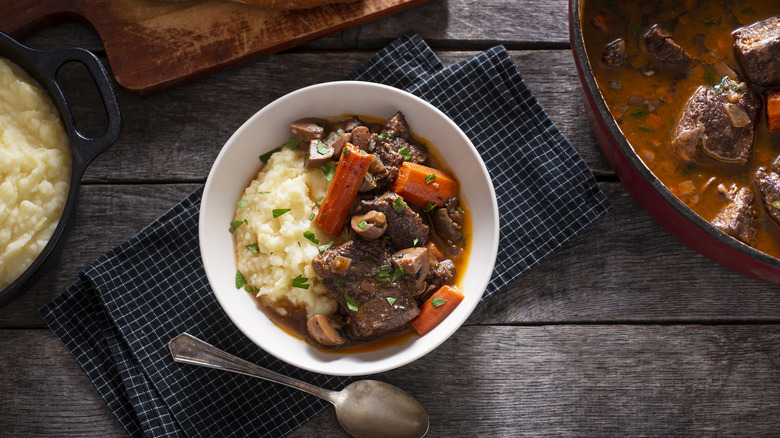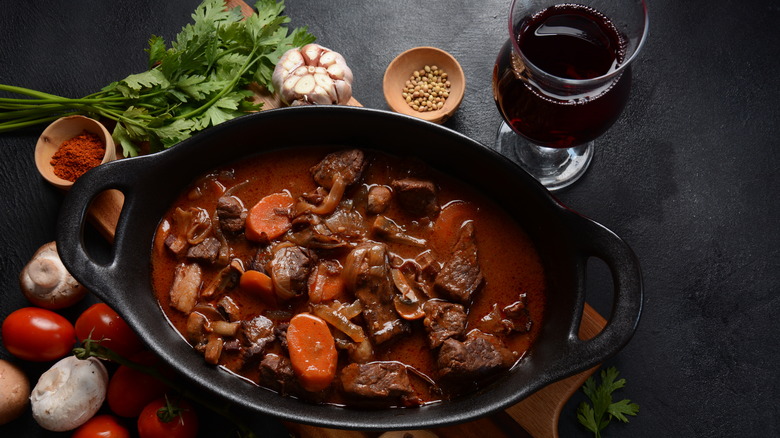The Best Type Of Wine To Use For A Flavorful Beef Bourguignon
Beef bourguignon is a classic French dish with deep, rich flavors that develop through slow, careful cooking. This low-and-slow stew takes hours to come together and is made with a variety of aromatics, vegetables, and, most importantly, a generous amount of wine. Wine is what helps create its signature complexity, tender meat, and deep color. While you could technically use less wine or substitute with beef broth, sticking to a full bottle is what really brings the flavors together. In fact, making beef bourguignon without wine is not only uncommon, it's not recommended if you want the authentic depth that makes the dish so special.
Now, because it requires a full bottle of wine, the type you choose is particularly important for achieving the right balance of flavors. The best wine to use for beef bourguignon is a dry red wine, as opposed to a sweeter wine. Burgundy is the traditional choice, so Pinot Noir — which is a red Burgundy — is a perfect option. Other contenders include cabernet, merlot, or chianti. The wine doesn't have to be expensive, but it should be one you enjoy drinking, as its flavor will significantly influence the final result. Beef bourguignon's wine-forward nature means that the quality and profile of the wine directly shape the richness, acidity, and depth of the sauce.
Why wine type matters
Just as getting the best cut of beef matters for your stew, the wine you choose plays a pivotal role in beef bourguignon. The difference is that, when braised, a tougher, cheaper cut, like an underrated cut of beef, can turn into something special. But the wine not only acts as the main liquid for braising but also deeply influences the flavor of the dish. The right wine brings depth to the sauce without overshadowing the complexity of the aromatics, vegetables, and beef, creating a perfect balance between the richness of the stew and the brightness from the wine. The goal is to enhance the natural taste of the meat, not mask it.
Wines with tannins, like Pinot Noir, bring a well-rounded flavor profile to the dish, balancing its richness. Bolder wines might sound appealing, but they can sometimes overpower the beef's flavor and the delicate notes of the dish. You'll also want to avoid those with excessive sweetness, as they can introduce clashing sweet notes that detract from the richness. Using poor-quality wine can significantly affect the dish, as its dominant flavors will become pronounced during cooking — and those often don't mesh well with the other flavors. Finally, definitely stay away from cooking wine — it has no place in beef bourguignon.

